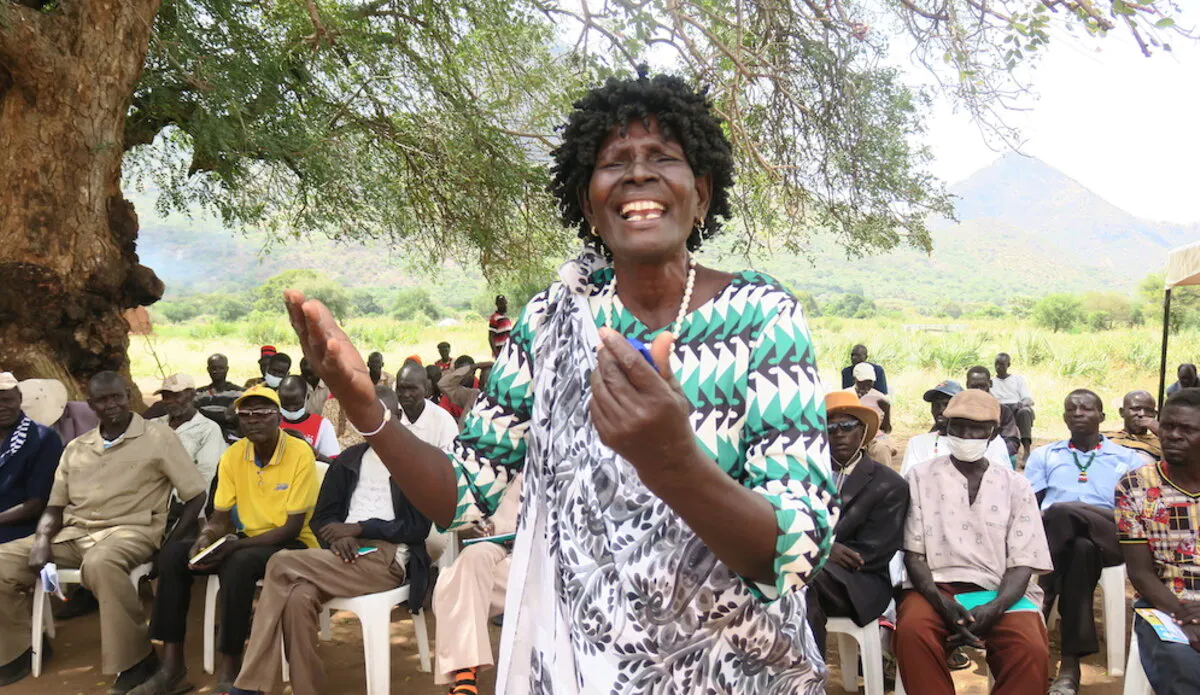
| The peacekeeping mission assisted the state government and the feuding communities in arranging a belated follow-up conference to address numerous accumulated issues |
| JUBA, South Africa. “People here are happy now and life is good. We can again walk to our farms and harvest our sorghum, without fear. We are having peace and will live and eat together,” says Regina Dudu Iwari, a women’s leader in Chahari Payam. The people of several different ethnicities living here in Eastern Equatoria State’s Kidepo Valley have not always enjoyed such joyous harmony. In 2018, following several seasonal cattle migrations plagued by tensions and violence as cattle and humans fought over scarce resources, communities in the area got together to resolve their differences. The agreement reached then was largely respected for almost three years, but with the dissolution of the now defunct states of Kapoeta and Torit, conflicts resurfaced. “The communities suffered from the political leadership vacuum created when there were no longer state government officials on the ground. They asked us to patrol the area more frequently and to support a new gathering to revitalize resolutions that were no longer being abided by,” explains Abdul Kamara, a Civil Affairs Officer serving with the United Nations Mission in South Sudan. Together with the United Nations Development Programme (UNDP), the peacekeeping mission assisted the state government and the feuding communities in arranging a belated follow-up conference to address numerous accumulated issues. The meeting seems to have been successful. “In the new resolutions that we have signed, we have agreed not to raid cattle again, engage in revenge killings, fight over territory, commit sexual violence or road ambushes. As women, we have also requested to be equally involved as men in the implementation of these measures,” says Iromo Pasquina Lino, chairperson of women’s organization for peace in the area. Those in attendance also agreed on holding perpetrators of crimes accountable, a ban on certain harmful alcoholic beverages and a need for the government to deploy troops in the areas most prone to conflicts. The UN family will also play its part in enabling sustainable peaceful coexistence in Kidepo Valley. Projects to construct both a water reservoir and a boarding school are or will soon be underway, but for these developments to take place, peace will need to prevail to make working conditions safe. |
